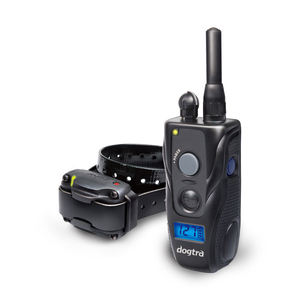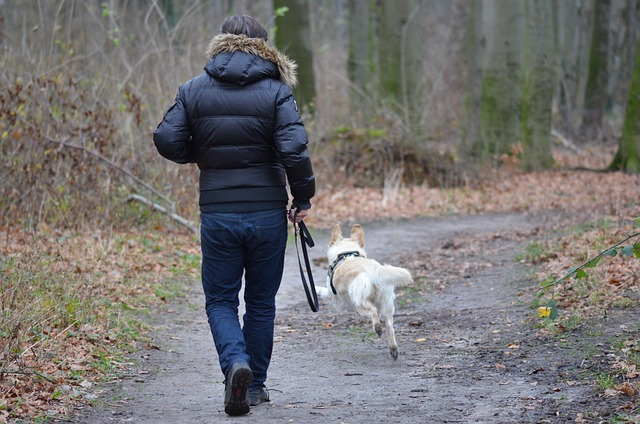What is the least effective method to retrieve a dog that has got off leash?

The information below is solely for educational purposes.
Having your dog off leash can sometimes be stressful ESPECIALLY if your dog runs off and are not coming back when you try to retrieve them.
As a pet owner it’s easy to panic in these situations, thinking you have a lost dog on your hands and end up scream at them to come back... however it’s usually to no avail and they happily running around with other dogs or in the opposite direction to where you want them to go to.
Do any of the below questions sound familiar as a dog owner?
- Does your dog run off and ignore you when you let them off the lead whilst out on a walk?
- Have they suddenly bolted after a squirrel or cat they’ve seen in the woods when in an unfamiliar environment and you can't get them back?
- Are they refusing to come back when you ask them and instead think it’s a game?
These are common question a lot of dog owners experience but luckily they are all fixable :)
In this article you will learn:
-
What not to do when your dog is off leash
-
The LEAST effective ways to retrieve a dog that has got off-leash
-
The MOST effective method to retrieve a dog that has got off-leash
-
How to prevent these situations from happening in the first place
-
Why it’s important to have a good recall
-
Why do recall problems happen?
At the end of this article, you will understand exactly what to do and more importantly WHAT NOT TO DO when trying to retrieve your off leash dog.
As a result you will feel more confident in having your dog off-leash which means more stress-free walks and freedom for your pet pooch :)
Let’s get started…
Why do recall problems happen?

First of all, let’s start with why recall problems happen.
Recall problems are very common among dog owners and stem from 2 things;
-
Obedience issues
-
Leadership issues
Obedience Issues:
An obedience issue is when the command you have taught your dog to get back to you isn’t reinforced enough. When they hear the command they don't understand what it means to come back to you.
Leadership Issues:
A leadership issue is when the dog understands exactly what you mean by your recall command i.e. ‘Come!’, however, they are making the choice to ignore you.
Whatever they are fixated on is more important to them than coming back to you.
With a leadership issue, your dog might have the best obedience in the world however, if when you try to retrieve him/her and they ignore you it can be a sign that you have a lack of leadership.
Your dog doesn’t respect you as a calm and consistent leader and can therefore thinks it can make its own decisions on how to act.
Whichever reason it is thankfully, both can be prevented with the proper training (read on to find out how).
Why is it important to have a good recall?

Having good recall is probably the single most important aspect (and often the hardest) to train your dog with.
With good recall, you can be confident to go for walks with your dog, have them off leash and give them the freedom they deserve to have a happy fulfilled life and not being stuck on a lead on every walk.
Without good recall your dog can get into all sorts of problems like running into the street and getting run over, attacking a neighbor's cat/dog, getting into fights, or simply getting lost.
Understanding how to handle a situation if your dog is off leash is vital for the safety of your dog and others and this all stems from having good recall.
Now we understand why this might be happening and why it’s important to get it fixed let’s dive into the methods to retrieve your off leash dog!
What is the LEAST effective method to retrieve your dog when it’s got off leash?

First of all let’s cover some of the LEAST effective methods of retrieving your off leash dog. By understanding these you wont be unwittingly reinforcing negative behaviour.
Below I will list a few basics that will rarely work if you want to retrieve your off leash dog.
1. Start Panicking
Now this one is easier said then done and it depends on the situation. Trying to remain calm is one of the most important things to remember if you want to keep your dog's attention.
For example, if your dog is running directly into traffic then a stern shout of their name can sometimes do the trick in this dangerous situation. If you I would rather do this then try to calmly approach them as you dont have time to react slowly.
However, if the situation is that your dog is off leash and is running wild round the park whilst completely ignoring you then this requires a different approach.
Although it can be very stressful when your dog has run off panicking will only make the situation worse.
Dogs feed off energy and need calm, consistent leadership from their owners.
As I previously mentioned before, one of the main reasons it’s hard to retrieve your dog in the first place is because of leadership issues.
If you panic and start screaming at your dog to come back does that set a good example as a calm, collected leader?
No, of course, it doesn’t and it simply reinforces this behavior going forward.
In the dogs eyes they simply think you are losing control and when they notice that they think they dont have to listen to you even more!
Yes, you might be able to retrieve your dog if you can catch them but they will know that they can ignore you next time.
I know it’s hard to do but the first step is remaining calm if you want to retrieve your dog.
2. Running after them in a direct line

Again, this depends on the situation. If your dog is engaged in a fight then of course you need to run up to them immediately to break it up however if they are simply running loose and not coming back then take a different approach.
Chasing after your dog can oftentimes backfire as by doing this they can think that you are playing a game and not take you seriously.
Have you ever been in a park and watched a dog chase with a fast breed like a whippet? My Doberman playfully chases after whippets all the time much to the amusement of the whippet who is comfortable knowing it will never get caught.
It’s funny to watch as they will often get really close and then dart off knowing that they won't be able to be caught.
In your dogs eyes, if you take the same approach and chase after them you are signifying that it is just a game.
There are more effective ways to retrieve your dog which we discuss below…
3. Scolding them when they do eventually come back (NEVER DO THIS!)

Lastly, scolding your dog when they eventually come back to you is one of the least effective ways to retrieve a dog in future.
It communicates to your dog that if they DO come back to you they will get in trouble and works the opposite way to using positive reinforcement.
Remember that dogs don't think the same way as humans. When they eventually do come back to you and are greeted with a stern telling off, they can't join the dots between the behavior they just displayed and the punishment you are giving them.
They simply think “I’ve been called by my owner, I’ve gone back, and now I’ve been punished..”
Scolding your dog when they return teaches your dog that if your dog is loose and you approach your dog something terrible will happen and therefore reinforces the unwanted behaviour.
Avoid doing this at all costs and even if they have been going crazy running loose for an hour as soon as they come back to you reward them with a stroke or high-value treats.
This communicates to them that coming back to you is always a good idea instead of running loose and ignoring you.
Now we’ve discussed the LEAST effective methods to retrieve your off leash dog, let’s discuss the MOST effective methods!
What are the MOST effective methods to retrieve an off leash dog?
There are various tactics that can be used to retrieve most dogs all of which have pros and cons.
There are also some tools that you can use to ensure that you have full control even if your dog does go off leash.
Let’s start with some tips on how you can effectively get your dog back to you if they are off leash.
Different tips apply to different situations and you need to quickly assess how dangerous the situation is going to be.
For example if your dog is running towards the road and you know a shout should get them to come back to you please dont hesitate to do this. You must decide how to react quickly given the situation.
If your dog was loose in the park with no immediate threats nearby then the following tips should help.
Note: The tips detailed below are different to the obedience and leadership training that will need to be completed separately and need their own standalone articles to truly cover them properly.
If you are interested in training courses you can check our our handpicked selection of courses here:
Ok let’s get started!
Tip 1: Act happy and excited!
Acting happy and excited by raising your voice to a higher pitch whilst calling their name, patting on your legs and running from side to side from them can get your dog to come back to you.
By doing this it communicates to your dog that coming back to you will be a fun, exciting and pleasurable experience!
Notice i mentioned running side to side not directly at your dog. I wouldn’t suggest doing this whilst approaching your dog as they might think it’s part of the game so going sideways or even away from them is much better to retrieve them.
One downside to running away from them (although it can work as they will want to chase you) is that you are increasing the distance between yourself and your dog so i would only recommend this if you can see that your dog is watching you.
A better alternative is zig zagging so that you dont increase the distance between you.
Tip 2: Dropping treats and running
Drop some treats on the floor and then a little bit off. When your dog chases after you and smells the treats it will want more. Keep doing this until your dog comes directly up to you to get a treat and then calmly leash them.
Important Note: I tend to want to avoid doing this as it essentially bribes your dog to get back to you. When you dont have any treats they might not listen. However, if you have tried the other tips and need to retrieve your dog then doing this as a one off wont have any lasting effects.
Tip 3: Lie down on the ground and make high pitch noises
I know this sounds embarrassing especially if you are in a busy park but it can be an effective method of retrieving your dog.
Simply lie on the ground and make a high pitched noise and your dog should come over.
It’s a non threatening position to your dog so if they are being hesitant due to fear this can work well.
Be warned that some people might think you are crazy!
Tip 4: Approaching your dog in an arc
Approaching your dog in an arc or zig zagged is a good way to get close to them where you can eventually leash them.
As we discussed before if you want to retrieve an off leash dog you don't want to do this head on as they will run away.
Calmly approach them from the side and remember not to look at them or have your body facing them.
This should put them at ease until you can secure them.
Tip 5: Leash them in a neutral manner
Finally, when you do manage to retrieve your dog remember to leash them in a neutral manner.
They might have had you chasing them around the park for an hour which can be super embarrassing but by staying calm and having a pleasant tone you are communicating with them that nothing bad will happen when you retrieve them.
How to prevent your dog from going off leash?
In the last section, we will discuss how to prevent your dog from going off leash.
As with anything the best way to reduce the risk of this behaviour is by preventing it happening in the first place.
Dogs go off leash (and stay off leash) for 2 reasons.
1. Weak Recall
Firstly, they are let off leash, however, their recall isn’t strong enough so they simply ignore you for the reasons we mentioned in the beginning of the article (obedience or leadership issues).
2. Incorrect leash training
Secondly, they escaped the leash and bolted. Dogs with strong prey drive are more prone to this but it can happen to any dog breed.
For the first reason, the best way to avoid this situation happening is to keep your dog on a leash until they have built up a better recall response. How will you know when they are ready? When they come back to you on the first call every time.
If you need help with recall training we have reviewed some of the best training courses available online here.
If your dog has got loose of his/her leash then it’s worth mentioning the best way to hold a leash.
A lot of people do this incorrectly and it makes it easy for the leash to slip out of the owners hands. Holding the leash in the right way can make a big difference to the way you work with your dog.
Here’s a short video that shows you how to hold a leash properly:
Product Recommendation: Remote Collar

Remote collars or remote collars with a gps tracker installed give an increased level of security and control when you want to have your dog off lead in a large city or traffic area.
This has literally been a lifesaver for my dog who has an extremely strong prey drive. There was one time when he saw some horses in a field and he bolted after them.
One kick from a horse could kill a dog but as he always has a remote collar on i pressed the button and he came back instantly.
It essentially works like a TENS machine that people use for their abdominal muscles and is a way of you giving a correction to your dog at long distance.
Be aware that for some reason they have a bad reputation from the positive only training community. If used correctly they DO NOT harm your dog.
Personally my dogs life is more valuable then other peoples uninformed opinions and if i had not had a remote collar on my dog, my dog could have been killed many times.
Again, this is down to personal preference but i would recommend watching this video by Upstate Canine Acadamy on how to use one and how they work:
Using a remote collar gave my wife and I the confidence to let our dog roam freely with the knowledge that if he runs off we can recall him back 100% of the time regardless of the distractions.
What is the least effective method to retrieve a dog that has got off leash - Conclusion

As we have discussed in this article the first thing that dog owners need to remember is to stay calm and composed when faced with this situation (and this applies to pretty much every situation concerning dogs).
Hopefully, you now understand what to do and WHAT NOT to do if you need to retrieve your off leash dog.
Plus we shared some tips on how to build up your dogs recall ability. Yes, this takes time to do but is well worth it in the long run!
Happy walking :)

